Book Review: And Then She Fell by Alicia Elliott
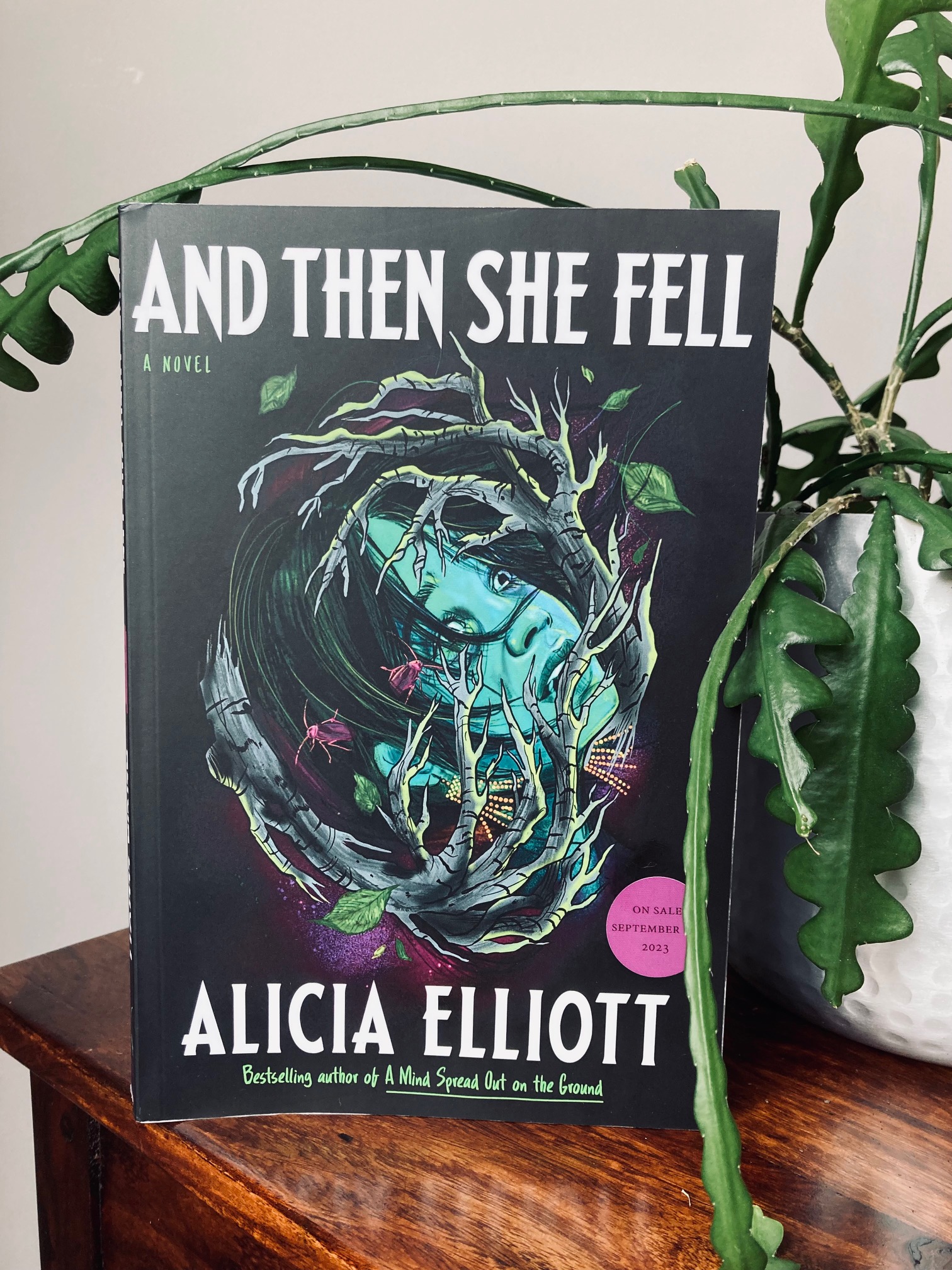
Having never read her first, bestselling book A Mind Spread Out on the Ground, I was excited to pick up Alicia Elliott’s new book, a work of fiction titled And Then She Fell, because I felt like I was missing out on a very new and cool writer if I didn’t. I enjoyed this one, although I’ll also admit to not fully grasping the entire plot as it includes many twists and turns into itself, bending the concept of time. It’s the story of a slow descent into psychosis, but also, an awakening of indigenous cultural understanding. This book challenged me in a few different ways, but I appreciated being pushed, and I encourage others to do the same and pick it up.
Plot Summary
Alice is a young Indigenous woman who lived her entire life on the rez, but moved off of it into a wealthy white neighborhood with her Caucasian husband Steve after they discovered she was pregnant. Their daughter Dawn is a healthy newborn, but Alice is struggling with the adjustment to life in Toronto and the challenges of new motherhood. She’s haunted by the recent death of her mother and finds herself twisting between gratitude and resentment of her husband’s academic job. He is depicted as a kind if somewhat clueless man. He is taking language classes in Mohawk, the language she herself doesn’t have a strong grasp of. It’s his way of connecting to his wife’s culture in an effort to preserve it for Dawn, but she’s resentful of his efforts. Alice is an aspiring writer who fondly remembers her father’s stories, and his role as storyteller for their community. She is trying to re-write a creation story that is well known in their culture, but having difficulty to put words to page because of her self doubt and sleep deprivation. The less sleep she gets, the more paranoid she becomes, until she begins to suspect Steve, the neighbors, even her friends from the rez are spying on her.
My Thoughts
Before the actual book begins a letter from the author to the reader is included. It gives a bit of context to the work of fiction, explaining that she herself suffered from a period of psychosis a few years ago. She further explains how mental illness has run through her family, but once she experienced a mental break herself, it re-framed how she viewed mental illness going forward, hers and others. By including this letter at the beginning of the book, I believe the author intends us to draw connections between herself (Alicia) and her protagonist, Alice. But this isn’t a story that offers a clear perspective of mania, instead, it uses elements of horror, time travel, and cultural folklore to muddy the waters of realism, leaving the reader lost as to what is real for Alice, and what is part of her psychosis. Not all readers will feel comfortable in this space, but that’s the point, it’s uncomfortable to not understand what is real, which is the case for many suffering from mental illness.
This book also pushes white readers into discomfort as it examines Alice’s transition to life off the rez, and her attitudes towards white and non-Indigenous people. I’ll admit to feeling annoyed at certain statements Alice makes; the way she generalizes white people, especially white women, lumping us into one category. But that annoyance is a great reminder of how little I am actually lumped into a category based on my race; it’s a fleeting example of what racialized people are faced with on a daily basis. Indigenous people are certainly still discriminated against here in Canada, and I know this continues on in many parts of the world. So even though I’ll experience a flash of irritation at an unfair comment or generalization, I again believe the author is doing this on purpose; does she believe all white women are a specific way? Probably not, but she forces this discomfort on readers to prove a point.
It may seem as though the author is consciously placing barriers between herself and the reader, but her depictions of new motherhood are so spot on that I found myself relating to Alice more than I realized. She’s tired, she feels like a terrible mother, and she misses her old life. Even the most natural of mothers will have days like this, so before Alice slides into her mania, her life will look familiar to many readers. Her marriage is clearly ‘new’, as she doesn’t feel comfortable completely opening up to Steve yet, which also contributes to the paranoia building in her mind. Again, even though I can’t relate to that specific feeling in my own marriage, it’s a trait I see in many of my friends’ relationships, so despite the supernatural elements of this book, Alice and her life will be recognizable to many. The transition from the ‘normal’ to the ‘abnormal’ in the plot is a gradual one, which in the horror genre, is so often the case. Not everyone will stick with it, but I think it was worth the ride.

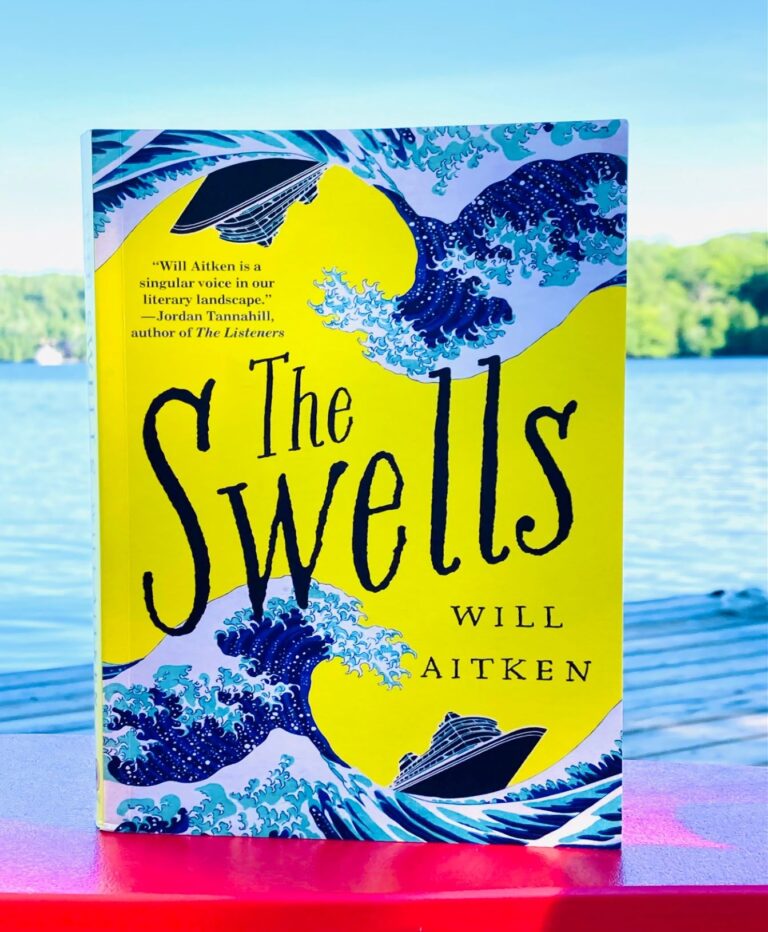
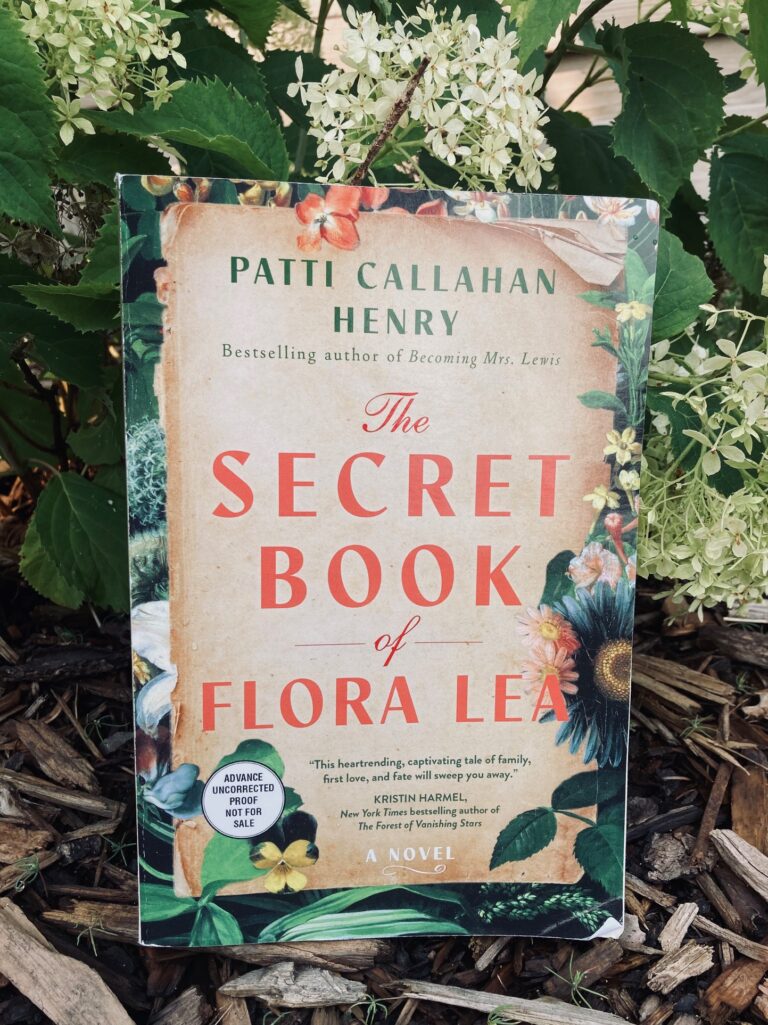

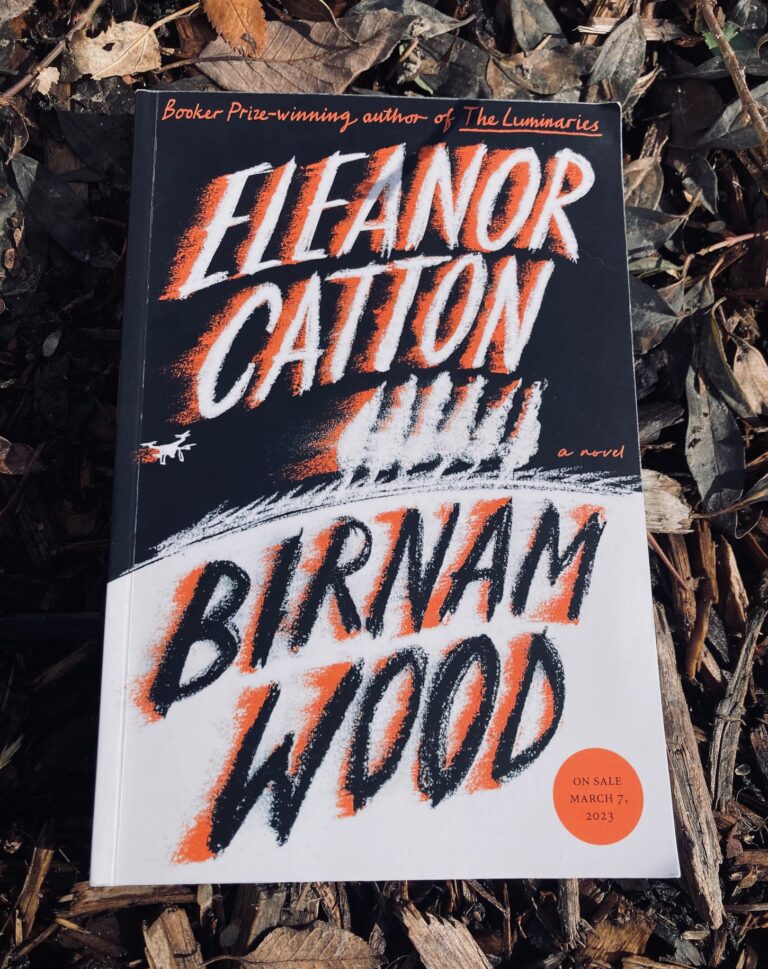
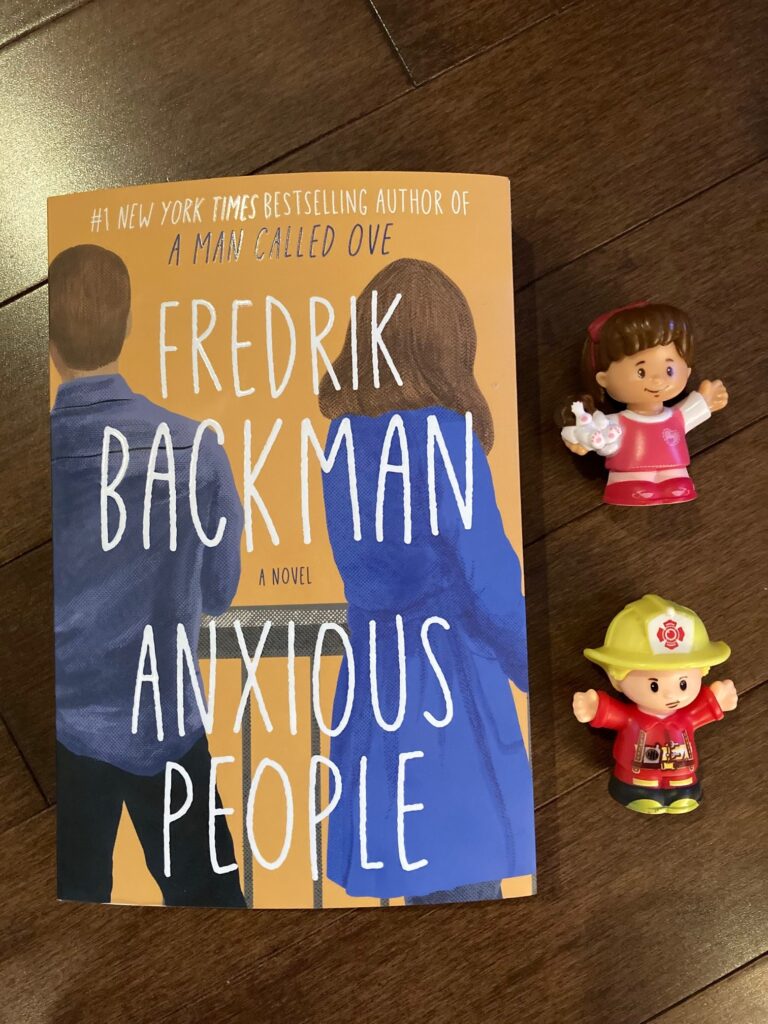
Yes I was annoyed by how she always felt like she couldn’t be honest with him, but I’m always surprised when married women have that attitude. I think it’s (sadly) more common than we think.
In many of our Literary Wives books, it comes down to communication. How many times have I read a book and wanted to shout to the couple to talk to each other!!
I read Elliott’s book of essays and thought it was really good, so have been planning to read this. I think it’ll come down to whether I have the time.
It always seems to come down to communication, doesn’t it?
I tried sticking with this novel, but I’m gonna have to return it to the library after reading 100 pages. Not a fan of the protagonist. Interestingly, that letter from the author wasn’t in the U.S. edition or in the sample at https://www.penguinrandomhouse.ca/books/712323/and-then-she-fell-by-alicia-elliott/9780385684101. Maybe that intro letter was only in advanced copies?
Oh that’s a good point, perhaps it was only in the ARC? Hmmm maybe a Canadian reader can comment if it was in CDN editions…